Do you want to try adding more vegetables and plant-based proteins to your diet but don't know how? Meal planning, especially for those who are vegetarian or vegan, can be overwhelming — after all, it's hard enough to make sure you're taking in the right nutrients when you have a variety of food groups at your disposal.
That's why we've got some great tips on meal planning that will make eating a delicious and healthy meatless diet easy and tasty. With these simple strategies for balanced vegetarian meals, everything from grocery shopping to kitchen prep is covered. Read on to find out how meal prepping for a meatless lifestyle can become an enjoyable part of your day!
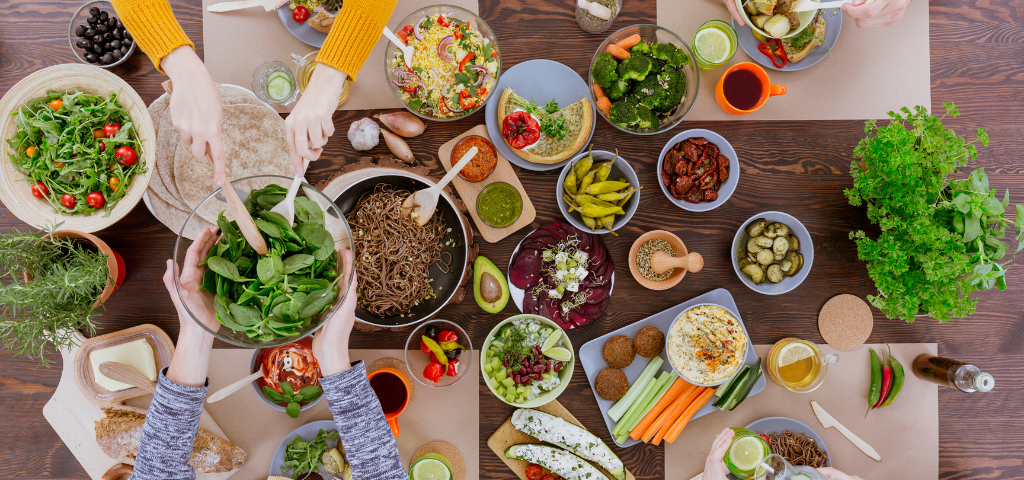
Consider your dietary needs - What type of vegetarian do you want to be (lacto-ovo, vegan, etc.) and what kind of nutrients do you need in your diet to stay healthy
Going vegetarian can be an incredibly healthy choice, but it's important to consider what type of vegetarian lifestyle you want to adopt. Do you want to be lacto-ovo, which means you still eat dairy and eggs, or do you want to go fully vegan and cut out all animal products? Once you've made that decision, it's important to think about what kind of nutrients you need to ensure you stay healthy.
Vegetarians can sometimes struggle with getting enough protein and iron, so it's important to make sure you're incorporating enough plant-based sources into your diet. However, with a little bit of planning and research, being a healthy and happy vegetarian is achievable.
Ultimately, it’s important to remember that following a vegetarian diet does not have to be complicated. With proper planning, research, and education about the different types of vegetarian diets and associated dietary needs, you can easily maintain a healthy lifestyle free from animal products. There are many resources available online and in books that can help guide you on your journey toward vegetarianism. Additionally, seeking professional nutritional advice from a registered dietitian or healthcare provider may also be beneficial in achieving optimum health as a vegetarian. Taking small steps to gradually transition into your desired type of vegetarian diet is key - don't try to do too much at once! By making conscious decisions about what foods to include in your meals, you will be well on your way to a healthy vegetarian lifestyle.

Get creative with recipes - There's a world of vegetarian dishes out there from which to choose, so don't limit yourself to the same basic ingredients every time
Are you tired of eating the same old vegetarian meals every week? It's time to get creative with your recipes and explore the endless possibilities out there. With so many vegetarian dishes to choose from, there's no reason to limit yourself to the same basic ingredients every time. You can experiment with new flavors, spices, and ingredients to create exciting and delicious meals that will keep your taste buds guessing. Why not try out some international dishes, like Indian or Thai cuisine, to add some variety to your diet? Whether you're a seasoned cook or a beginner, there's always something new to discover in the world of vegetarian cooking. So why not spice things up and get inspired in the kitchen today?
Exploring vegetarian recipes is a great way to add variety and excitement to your meal planning. With the vast array of ingredients available, you can create flavorful dishes that will satisfy even the most discerning palates. Try experimenting with different combinations of vegetables, grains, legumes, nuts, and herbs to find unique flavor profiles. Don’t be afraid to substitute unusual ingredients for traditional ones—the possibilities are truly endless! You'll be surprised at the delicious meals you can make when you get creative with vegetarian cooking.

Integrate plant proteins - Beans, nuts, and other plant-based proteins can add flavor and nutrition to many dishes
If you're looking to add some extra oomph to your meals, plant-based proteins are definitely worth considering. Beans, nuts, and other plant proteins can offer a range of flavors and textures that can elevate your dishes. Plus, they're packed with nutrition, including fiber, vitamins, and minerals.
Whether you're opting for tofu in your stir-fry or chickpeas in your salad, plant-based proteins can be a great way to mix up your mealtime routine. So if you haven't tried incorporating these ingredients into your cooking yet, give them a go and see what delicious creations you can come up with!

Stock your pantry with nutritious items - Have all the basics on hand so you don't have to make an extra trip to the grocery store when meal planning
When it comes to meal planning, having a well-stocked pantry can make all the difference. Not only does it save you time and energy by avoiding extra trips to the grocery store, but it can also inspire you to get creative with your meals.
Essential items for a vegetarian pantry include legumes like dried beans, lentils and peas, as well as grains such as quinoa, bulgur and barley. Nuts and seeds are also great sources of plant-based protein that should always be included in the pantry. To add flavor and nutrition to meals, herbs and spices are must-haves. A selection of canned tomatoes, coconut milk and vegetable broth can also come in handy for quick meals.
Start by stocking up on nutritious basics like whole grains, canned beans, and a variety of spices to add flavor without adding extra calories. Don't forget to include items like canned tomatoes, broth, and frozen vegetables for easy and quick meal prep. And of course, a few sweet treats and indulgences are always welcome too.
With a little bit of planning and a well-stocked pantry, you'll be well on your way to tasty and healthy meals in no time.
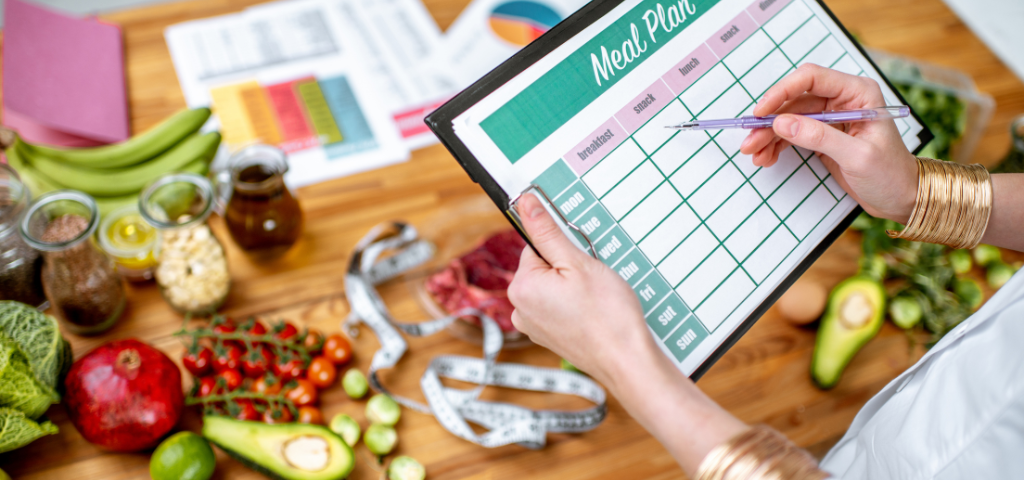
Plan ahead – by setting aside time at least once a week for meal planning, you'll save time during the week
Let's face it, sometimes the last thing we want to do after a busy day is thinking about what to make for dinner. That's why meal planning can be a lifesaver! By setting aside just a little bit of time, once a week, to plan out your meals, you can save yourself a lot of hassle throughout the week. That way, when it's time to cook, you already know what you're making and you won't have to scramble to figure things out.
Meal planning is a great way to ensure you are getting the most out of your vegetarian meals. Taking the time once a week to set aside for meal planning helps save time and energy throughout the rest of the week. When meal planning, it’s important to focus on balanced nutrition that includes essential carbohydrates, proteins, and vegetables. This can be accomplished by including legumes, nuts, tofu, and whole grains in your meal plan. Additionally, make sure you are incorporating plenty of fruits and vegetables into each meal for maximum nutrition. Finally, adding herbs and spices to your meals can help boost flavor without relying on added fat or salt. With thoughtful planning and preparation you can create tasty vegetarian dishes that will keep you feeling full and satisfied.
By planning ahead, you can make sure you have all the ingredients you need on hand - no last-minute trips to the grocery store are required! So why not make meal planning a habit? It'll make your weeknights a whole lot smoother.

Try out new recipes – Experimenting with different flavors and techniques will ensure that mealtimes stay exciting and delicious!
Looking for a way to spice up your mealtimes and satisfy your taste buds? Why not try out some new recipes? Experimenting with different flavors and techniques is a fun and exciting way to keep your meals interesting and delicious. Whether you're looking to impress your dinner guests or just trying to switch things up in the kitchen, there are endless possibilities to explore. So grab your apron and get ready to embark on a culinary adventure – who knows, you might just discover your new favorite dish!
BONUS: Simple strategies for meatless meal planning:
- Variety is key – Incorporate multiple sources of protein into your vegetarian diet so you don't miss out on the essential amino acids normally found in animal products. Beans, lentils, nuts, seeds and tofu are all excellent sources of plant-based protein.
- Use seasonal ingredients – Shopping locally and seasonally helps to ensure that your meals have maximum flavor and nutrient density! Visit farmer's markets or join a CSA (Community Supported Agriculture) to get fresh produce at a discount.
- Embrace ethnic cuisines – Ethnic dishes often rely on ingredients such as legumes, grains and vegetables as the main components of their recipes. This makes it easy for vegetarians to enjoy delicious meals from around the world!
Becoming a vegetarian can seem like a daunting task, but with the right planning and knowledge, you’re bound to see delicious results! It's important to consider your specific dietary needs, get creative with recipes and integrate plant proteins into meals. Planning ahead is also key for saving time during the week and trying out new recipes will keep meals exciting.
With these tips in mind, you’ll be well on your way to successfully transitioning into a vegetarian lifestyle. Just remember that being vegan or vegetarian isn't just about what you don't eat—it's also about discovering all of the new fruits and vegetables that you can add to your diet. Enjoy your cooking journey as you explore a variety of nutrient-packed foods. Bon appétit!
Frequently Asked Questions
How much protein does a vegetarian need?
The amount of protein a vegetarian needs depends on their age and activity level. Generally, it is recommended that people aged 19-70 years old consume 0.8 grams of protein for every kilogram of body weight per day. For example, an adult male who weighs 70 kg should consume 56 grams of protein daily.
Do vegetarians need vitamin B12?
Yes, vegetarians need vitamin B12. Vitamin B12 is found in animal-based foods such as meat, eggs, dairy products, and fish. As vegetarians do not consume these foods, they must find alternate sources of vitamin B12 to meet their dietary needs. Some plant-based foods such as fortified breakfast cereals, fortified soy milk and nutritional yeast are able to provide small quantities of vitamin B12. It is recommended that vegetarians take a daily supplement of vitamin B12 to ensure they are meeting their dietary requirements.
Is being a vegetarian better for the environment?
Yes, being vegetarian can have positive environmental impacts. Plant-based diets require less land to produce compared to animal-based diets, and they typically produce fewer greenhouse gas emissions. Eating vegetarian can also conserve water as it requires significantly less water to produce plant-based food compared to animal-based food. Reducing your meat consumption is a great way to reduce your carbon footprint and help protect the environment.
How to start a vegetarian diet?
Starting a vegetarian diet can be an easy and enjoyable transition. Here are some tips to get you started:
- Educate yourself about vegetarian nutrition so that you know how to meet your dietary needs without consuming animal products.
- Begin by slowly replacing animal-based foods with plant-based alternatives in your diet, such as tofu, tempeh and seitan for meat, nut milk for dairy milk, and nut butter for butter.
- Try out different recipes using vegan ingredients to find flavors that you enjoy eating.
- Incorporate plenty of fruits, vegetables, whole grains and legumes into your meals for a balanced vegetarian diet.
- Reach out to other vegetarians for support or advice if needed

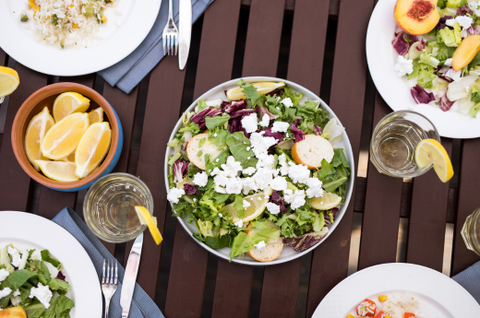
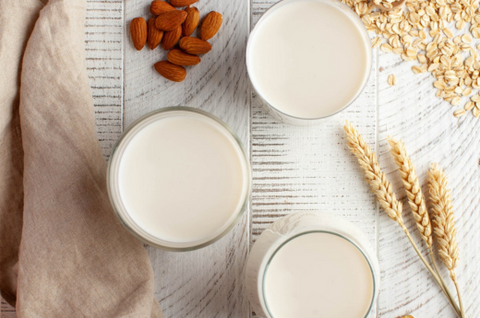
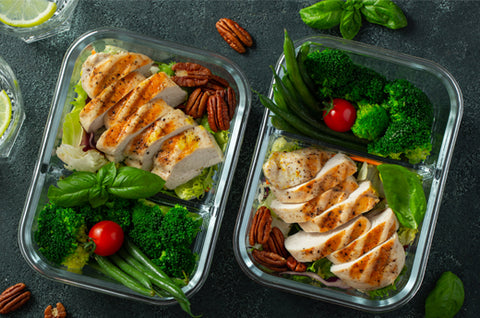



Comments (0)
There are no comments for this article. Be the first one to leave a message!